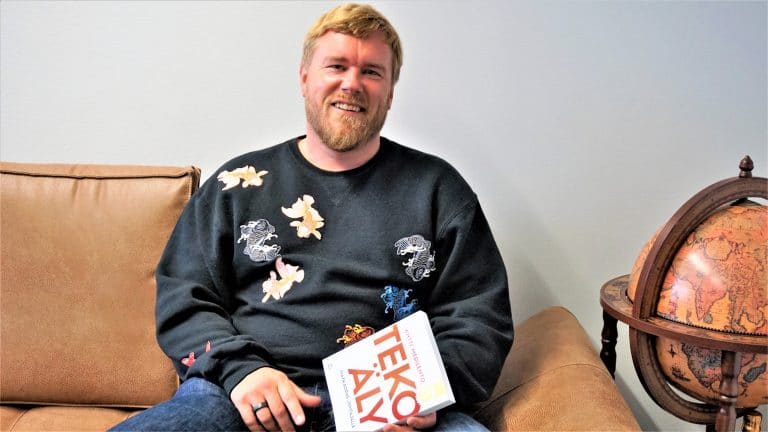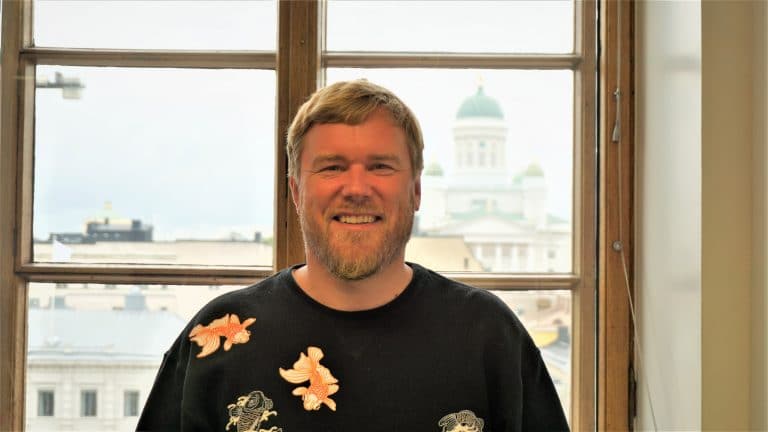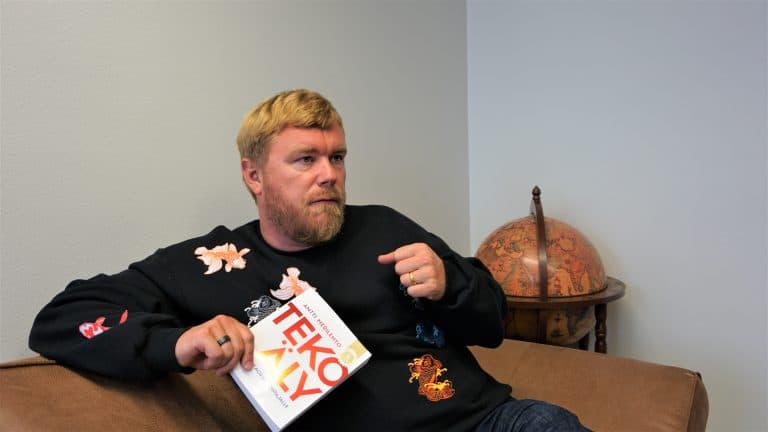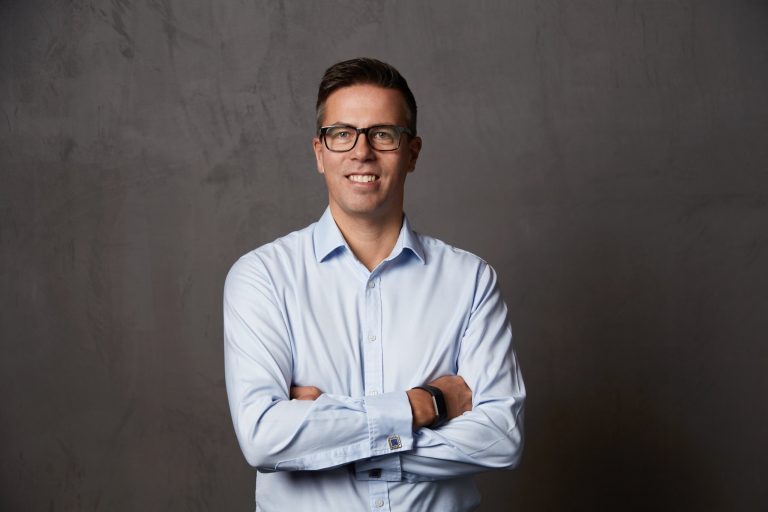I was the youngest Finnish officer ever to be sent to a peacekeeping mission
In Finland, all men are liable for conscription, either military or non-military service. As a bilingual country, people can choose to serve either in Finnish or Swedish. I intentionally chose to have my training in Swedish because I saw this was an opportunity to upgrade my language skills to the next level. After that, I applied for foreign service and got selected as the youngest Finnish officer ever to be sent to a peacekeeping mission after the 1950s.
Our mission in Bosnia and Herzegovina was to support the minority return to their original homes. Though dramatically destroyed, their homes and community were rebuilt thanks to the donations and aids from many organizations and countries, I was 23, very energetic and excited, we also worked with the NATO forces. I learned a lot from this, especially when working with the US military and training incoming people for a six-month combat mission. I did make life-long friendships there.
In the first ten years, we had served more than 200 different companies
Interestingly, you could earn good money from military service at that time. That’s how I got the money to start my first limited company – Storyboard – in 2003. Before that, I had been doing security work for night clubs. That experience built up my confidence to set up my own business in production of corporate events and event security. The meaning behind the company name is a sequence of drawings – a live changing sketch of what could happen.
I remember when registering the business, there was a big sign in the Finnish Patent and Registration Office reminding entrepreneurs to stay focused on one particular service or product only. I often joked with a friend of mine that my first business was doing exactly the opposite. In the first ten years, we served more than 200 different companies with all kinds of services. Our company solved the problem of mismatching between the work needing to be done and the people who can conduct the work.
People should earn more when working than the unemployment benefits
I never think that unemployment is solely the fault of the job seekers. I do understand that not only back then but nowadays applying for jobs is usually a hassle. You probably have to send hundreds of applications and go through multiple competitive interview rounds. It’s not easy to get a decent or professional job, which is one reason why I ran for parliament.
I believe things should be simplified. On one hand, we have free people receiving unemployment benefits, on the other hand, there are, for example, people who need help with moving or cleaning up in a festival in a couple of days. The point is to ensure that every hour doing the work, people can earn more than the unemployment benefits. In other words, it should be more profitable to work. And I believe this is a matter that should be taken care of by our government.
We were never the cheapest option on the market
One of the highlights in our company culture is employee benefits. I knew everyone in the crew in person, at the busiest time, we had 20 people on board. We committed to give the best to our people. If somebody wanted the cheapest price, we were never the ones who offered. Our service was usually 20% more expensive than the lowest option on the market. And that 20% surplus went directly to our employees. So If I could sell for a higher price, I would pay a higher salary.
When people worked for me, they knew for sure that there would be food, coffee, breaks, and last but not least, on-time payments. Nowadays I think the 30-day payment term is the norm. Back then, especially when small enterprises (like us) or entrepreneurs who were doing business with bigger corporations, they relied on the power disparity to insist on the longer payment term – usually 90-day net. I found it very wrong and rude.
However, I still went for big customers because only their deal would generate enough money for everybody on the team. What I did is that I first called people with family asking them if they could work with the long payment term. If they needed the money early, I would use my credit and make personal loans to pay them on time. But usually, people were flexible.
Make sure that everybody is treated fairly but not necessarily equally
One of my leadership principles is to maintain transparency within the company. I take into consideration the value of everybody’s contribution to give appropriate incentives. What I value most in the workplace is fairness. I always make sure that everybody is treated fairly but not necessarily equally. That means we can be flexible and agree beforehand for an exceptional incentive if your working outcome is outstanding. But, it’s of the utmost importance that by all means, you have to follow the code of conduct.
In other words, if you generate a huge amount of sales not with your capability but using unethical means, your results won’t be counted, instead, you are asked to leave. There is no alternative to integrity. The foundation for this type of leadership can be traced back to the basics of event security. We know why we are here. Our responsibilities are to keep the place safe for everybody to feel comfortable.
There is no such thing as “success on your own”
In Finland, it’s important to keep your integrity. You don’t want to treat people badly because one, it’s not the right thing to do and two, the chances are that you will be seeing them again. Finland is such a small world that I would not call it a country, it’s a “country club”. Everybody knows everybody.
More importantly, at the very core of entrepreneurship, for me, there is no such thing as “success on your own”. I don’t believe those from rags to riches stories where people become something marvelous just by themselves. There will always be some people who give you tangible help or some sort of intangible support, like a teacher who believes in you or a friend who lends you her or his saving money. There are always people behind everyone’s success story.
Always be kind, not egotistical
Talking again about unemployment, I don’t believe in something like “If your desire is big enough, you will get it”. No, there are always circumstances where things are difficult and you need external help. The point is to always be kind – it’s my message especially to young professionals – try not to be egotistical. Even if maybe at the moment you are in a powerful position, having a well-paid job in a big corporation. Chances are that one day everything will change to the opposite, you can lose all you have and need other’s help to overcome it.
Everything can happen, no matter how rare it may be, Nokia’s collapse is an example. I know it’s extremely hard to be kind all the time to everybody. But it’s worth it if you can. I’m not always like that but I’m trying to be. Because it’s nothing valuable if you can reach it on your own and for your benefit. You always need people to have different skills, capabilities, resources, and mindsets. This is what I can conclude by looking at the world through the lens of artificial intelligence (AI).
Different technologies are soon like Finnish lager beer – it all tastes the same
Technology is becoming a utility. We will have machine learning and computational power as a service. For me they are like Finnish lager beer – it all tastes the same. Harvard Business Review wrote in its article that now, to get the full advantages from AI, the hardware is just half of the story. It’s much more about culture. If there are three companies, all of them have the same technology. The data collected is different but data is often purchasable and borrowable. The point is the culture – how you can utilize the data, are your people scared that the technology will take over their job or they are excited to learn more to embrace the change.
I would not use the family metaphor in business. For example, if there is a trade war and my biggest customer goes bankrupt. I will have to let some of the employees go. I would never let my family members go. I don’t tell my brother “You are fired, please leave the family”. We are the AI company family, no, we are a company and we are here to work. Let’s have fun, make things transparent, bring as much value as we can to customers, and get rewarded for it. But we are not family working together.
Three biggest kinds of motivation
Young leaders need to understand that there are in general three biggest kinds of motivation why people stay in an organization.
1. Intrinsic motivation
You just love and want to do some particular activities. For example, you are good at languages so you want to work as a translator or you like stories and writing so you decide to become an author.
2. Monetary incentives
It’s not just the money that keeps you stay but other benefits come together with the salary.
3. Leadership motivation
You want to lead a team, to support other people to be the best version of themselves at work.
My favorite dessert is strawberry and cream but when I go fishing I won’t put strawberry nor cream into the hook, simply because it’s not what the fish want and like to have. This is a famous quote from Napoleon Hill. So everybody in the company has a different type of motivation. There is no one size fits all so the leader has to have a kind of tailor-made means to motivate each employee. One person just wants as much as the freedom to conduct their task, the other may need to be recognized and hold a high-level status so that they can perform well. All in all, you want to understand people to let them work in the most suitable department or do the task that they desire to do, and get excited in the process of doing it.
I had been leading a sales team, the most important part is to have a metric system that can measure the impact that you made. My golden rule about metrics is that when you want to add another metric, don’t. Simplicity and trust will win in the game of measuring performance.
Forget about the “passion” stereotype
I do think it would be healthy if people can forget about the “passion” stereotype. Don’t try to label everything you are doing or selling to be your passion. Of course if for example selling furniture or doing the maintenance for machinery does drive you crazy, you can say “ I am passionate about furniture or maintenance work”. However, I do think it’s not necessary to inflate about how you love what you do, especially on social media.
My mother worked at an insurance company, at a bank, at a loudspeaker manufacturer, as a play-roll assistant. I don’t think her passion was payroll but she was good at it. She never took a sick leave if she didn’t need it. She was flexible if it was the end of the month for extra work if the company needed it.
I would say that my mother is a person who requires a very high level of certainty that you know what is going to happen. This is something that you cannot let everybody do the same. We are different people, different personalities and I spend a fair amount of time trying to understand myself better through meditation, studying and that is part of you. It is about the personality that you do.
I do think that people should be very picky about what kind of company they work in. If you want a high level of certainty, being a bookkeeper 20 years ago, if you are a book-keeper and you go now to work for the government I might tell that your work will be very different in 10 years because of the automation and machine learning.
Being an entrepreneur is the fastest way to get something done
In Finland, public services work pretty well but the thing is that we cannot put a heavier burden on those who are creating jobs – the entrepreneurs. As an entrepreneur, I think the tax system drives many of us crazy. Because you have to start something no one has never done before. Imagine telling a normal person having a nine-to-five at a normal company – “Hi, this is a new technology in a new market. You have no reference please start to sell it!”. Things get more frustrated when there is not yet a final product to start with.
In terms of being fair, we have different political views on what is fair taxation. That is why we have politics. I do think that in the current situation – 2019 – if you want to change the world, being an entrepreneur is the fastest way to get something done and make sure you get a good book-keeper with you!
Start from the stage of not knowing
Many people talk about learning. My book wouldn’t have been published today if I wouldn’t have had the courage to start from the stage of not knowing. When I go to an event as a key-note speaker, the announcer usually says “And now we have the expert on AI”. I don’t see myself as an expert in this field. I did spend a lot of time with real experts who are professors and have been studying AI and data science for 20 years. They are the experts, not me. I am the person who can speak to the public, to the crowd, and to explain what it is about. It is about learning but also about creating, I am so happy when I see my book displaying somewhere. If I visit the company and I see that it seems to be read many times. It shows me that someone will be able to build something upon my work.
Get a good bookkeeper, honestly, especially if you are not into finance. You don’t have to understand it but you have to have somebody who tells you what are you doing good or bad, do you have enough money for the operation. That is my advice to people who are becoming entrepreneurs. Focus on what you do best, what you enjoy, what you think is the most valuable, and hire a bookkeeper.
Go for the best people in the business
My advice for young entrepreneurs is to try to find a way to spend as much time as possible with the best people in your industry. If you want to make movies, find the best movie maker to learn from. Your goal is to breathe the same air and learn things that are not available on Google or in online courses. This is more for young people than for entrepreneurs, people might become entrepreneurs at some point but maybe not.
If you want to understand something, you need to offer some trade-off for your learning by doing something valuable for your “mentor” – the person you would like to spend time with. Maybe then, if you do your job well, you get more meaningful stuff, and then you learn.
Final note, this goes beyond just business, the “no bastard” (Antti used a different term…) rules. Life is very short. Do not work with unpleasant people. If they are being rude and uncooperative, finish the project and move on. Don’t let them waste your time. There is no money big enough to trade off the time you spend on false people.
My learning is that grinding through any job that is not fun or pleasant to get into the fun part of your career. You should also be able to find working with your colleagues enjoyable, at least most of the time. Disagreements are manageable. Somebody might make mistake, say or do something that is not appropriate, mostly because of the cultural differences. We should always give people the opportunity to change. As they say, everyone deserves a second chance. But make sure you let them know what they did wrong and talk together about the matter.














